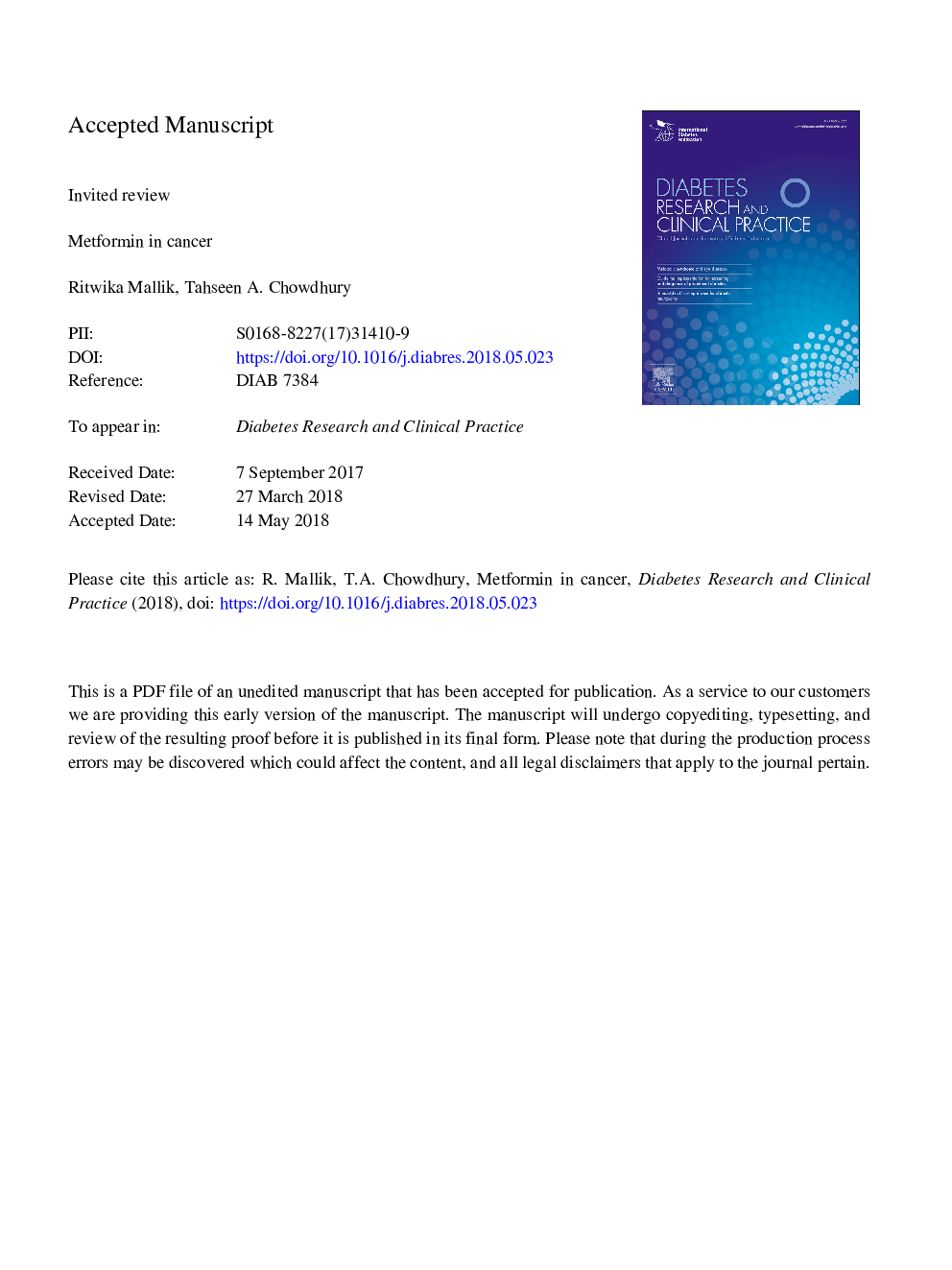| Article ID | Journal | Published Year | Pages | File Type |
|---|---|---|---|---|
| 11033807 | Diabetes Research and Clinical Practice | 2018 | 28 Pages |
Abstract
Metformin is a lipophilic biguanide which inhibits hepatic gluconeogenesis and improves peripheral utilization of glucose. It is the first line pharmacotherapy for glucose control in patients with Type 2 diabetes due to its safety, efficacy and tolerability. Metformin exhibits pleotropic effects, which may have beneficial effects on a variety of tissues independent of glucose control. A potential anti-tumourigenic effect of metformin may be mediated by its role in activating AMP-kinase, which in turn inhibits mammalian target of rapamycin (mTOR). Non-AMPK dependent protective pathways may include reduction of insulin, insulin-like growth factor-1, leptin, inflammatory pathways and potentiation of adiponectin, all of which may have a role in tumourigenesis. A role in inhibiting cancer stem cells is also postulated. A number of large scale observational and cohort studies suggest metformin is associated with a reduced risk of a number of cancers, although the data is not conclusive. Recent randomised studies reporting use of metformin in treatment of cancer have revealed mixed results, and the results of much larger randomised trials of metformin as an adjuvant therapy in breast and colorectal cancers are awaited.
Related Topics
Life Sciences
Biochemistry, Genetics and Molecular Biology
Endocrinology
Authors
Ritwika Mallik, Tahseen A. Chowdhury,
